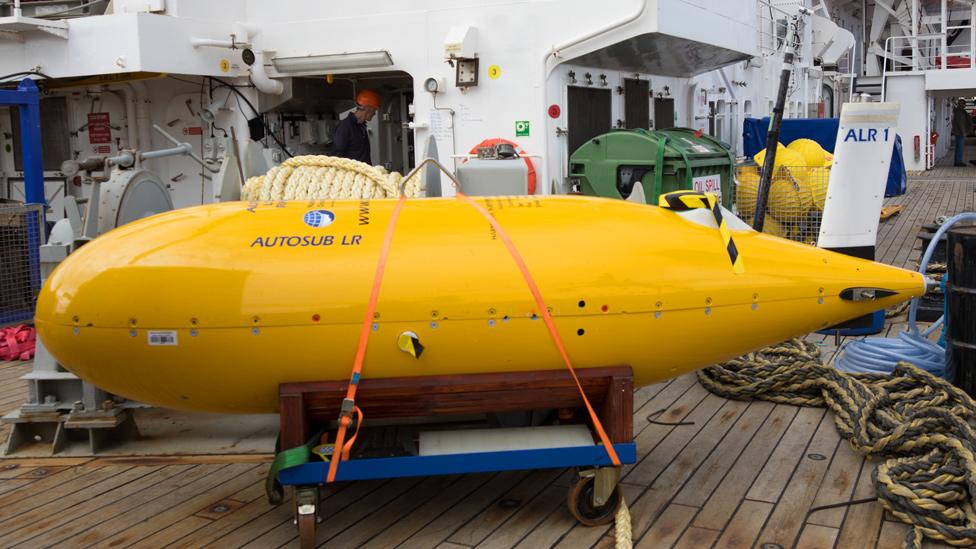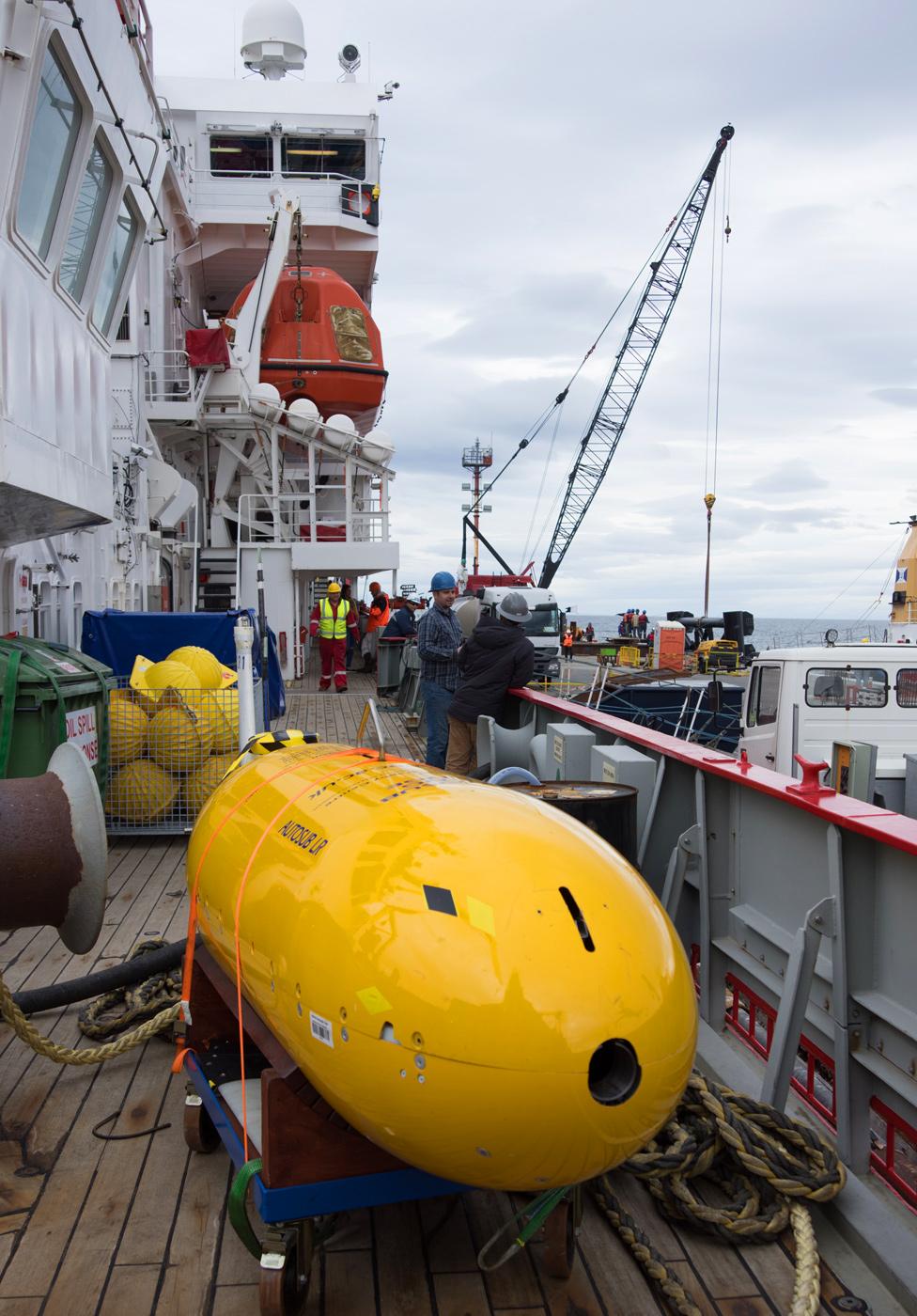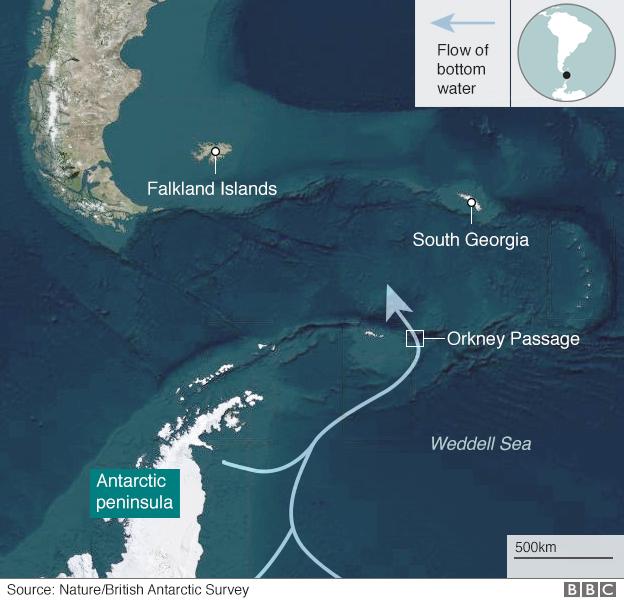'Boaty McBoatface' loaded for Friday departure
- Published

Sent out from Southampton, Boaty was loaded on to the RRS James Clark Ross on Wednesday
"Boaty McBoatface" has just been loaded aboard the UK's polar ship, the RRS James Clark Ross.
The yellow submarine is currently in Punta Arenas, Chile, and is due to sail for the Southern Ocean on Friday.
Scientists will use the robot to survey cold, deep waters that help to regulate Earth's climate.
The 3.5m-long sub was given the name that a public poll had suggested - but which ministers subsequently blocked - go on the JCR's replacement.
No matter - there is still enormous interest in the humorous moniker and the autonomous vehicles that will carry it underwater.

The hole at the front will house a probe to measure water conditions in the Orkney Passage. The robot has a map of the ocean floor in its brain that it uses to navigate. It moves at a sedate one metre per second
Southampton's National Oceanography Centre has built three robots in its new Autosub Long Range class, and all will be branded Boaty when they go out on an expedition.
The subs can stay down for weeks on end. They have a depth rating of 6,000m and a range of 6,000km.
The robots have proven their capabilities in a series of sea trials and are now open to the general scientific community to use.
First up is a mission being run by the British Antarctic Survey and the University of Southampton.
Their scientists plan to deploy Boaty to swim through a gap in the ocean floor ridge that extends northeast of the Antarctic Peninsula.
Known as the Orkney Passage, this opening is the main gateway for dense, cold waters formed around the White Continent to move into the Atlantic.
It is a key motor in the so-called "great ocean conveyor" - the relentless system of deep circulation that helps redistribute all the heat energy that has built up in the climate system.

Bottom-water is generated at the margin of the continent and then spills north into the Atlantic
The passage floor is very rugged, and will challenge Boaty's autonomous systems to keep it safe.
Mike Meredith from the British Antarctic Survey said: "Boaty's a very intelligent underwater system; it can sense the environment around it, so it knows the height it is above the seabed and it can map out its trajectory and its position in a very advanced way."
Povl Abrahamsen is a co-investigator on the cruise and took the pictures on this page. He added: "This is the first time that Boaty will be used in this type of environment, and it certainly will bring challenges.
"We're very much hoping that Boaty will help to give the spatial coverage that we can't really get from other methods."
Three subs in the class have been produced
Jonathan.Amos-INTERNET@bbc.co.uk, external and follow me on Twitter: @BBCAmos, external
- Published13 March 2017